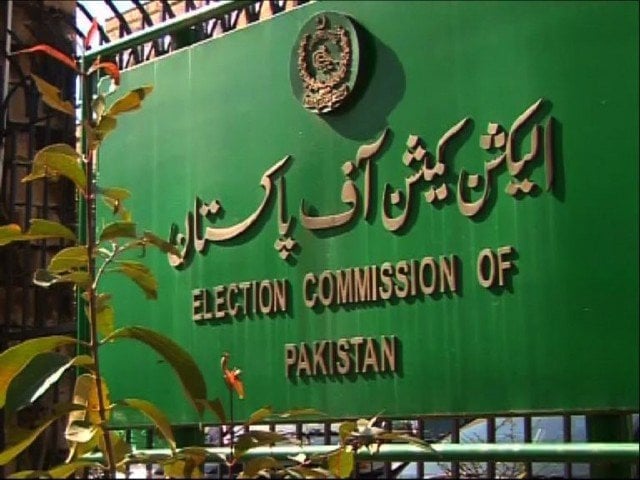
ISLAMABAD:
The Election Commission of Pakistan (ECP) transferred on Monday the election petitions of three MNAs of the ruling Pakistan Muslim League-Nawaz (PML-N) after they expressed a lack of confidence on the incumbent election tribunal and sought a transfer of their cases to another one.
The four-member ECP bench, headed by Chief Election Commissioner (CEC) Sikandar Sultan Raja, ruled in favour of PML-N’s Dr Tariq Fazal Chaudhry, Anjum Aqeel and Raja
Khurram Nawaz, stating in its judgments that the election tribunal headed by Justice Tariq Mahmood Jahangiri of the Islamabad High Court (IHC) exercised a jurisdiction not legally vested in him.
Three PTI-backed independent candidates, Shoaib Shaheen, Aamir Mughal and Ali Bukhari had challenged the election to three National Assembly seats of the capital – NA-46, NA-47 and NA-48 – alleging that the February 8 results were marred by rigging.
“The tribunal has deviated from the prescribed procedure of law under the Act, 2017 and the Rules, 2017,” the four-member ECP bench stated in one of the three judgments issued on Monday evening. “Once, for genuine reasons a party lost its confidence in a trial court, in such eventuality and to fulfill the ends of justice, the relief sought by the applicant is of worth consideration,” the bench stated.
In addition, an identical finding in the three orders by the ECP bench was that the PTI-backed candidates challenged the election results after the prescribed time, saying that the law provides that under Section 142 of the ECP Act of 2017, it is mandatory to file the election petition before the election tribunal within 45 days of the notification of the returned case.
“The petition filed by the Respondent [PTI-backed candidates] is hopelessly time-barred,” the ECP bench stated in the judgments.
In response to the object raised by the PTI-backed candidates over ECP’s jurisdiction on grounds that the ECP has already been impleaded as a respondent in the election petitions, the ECP bench ruled that Section 151 of ECP Act, 2017, empowers the commission to transfer the election petitions from election tribunal to another at any stage on its own motion or on an application of a party. It added that it is “the exclusive domain of the Commission”.
Another common sentence found in the judgments stated that the ECP bench has utmost respect and regard for the presiding officer of the Tribunal under consideration but detected “some apparent illegalities and irregularities, occasioned therein”.
While emphasising that it was crucial to fulfil the ends of justice, and to remove all kinds of apprehension borne in the mind of the petitioner, the ECP bench noted that “the office of the learned tribunal has extended the period for presentation of the petition beyond the prescribed period provided under Section I42 of the Act, 2017 while no court or tribunal could exercise a jurisdiction not legally vested in him.”
The bench also noted that there is no option available to a tribunal to remove any legal defect occasioned therein the election petition, prescribed under Section 142 to 144 of the Elections Act, 20l7 and in case, if any provision of Section 142, 143 or 144 of the Elections Act, 20 l7 is not complied with.
“Such election petition shall be summarily rejected in terms of Section 145(1) of the Act, 2017,” it stated, “however, in so far as the statutory time limitation prescribed under Section 142 of the Act, 2017 is concerned, the same defect could not be remedied, in a slipshod manner, subsequently, without application of mind to take away legal rights of other party accrued by implications of law without following due course of law.”

